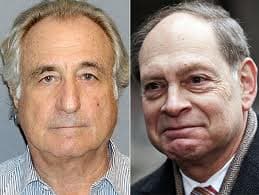 A recent Courthouse New Service, “Judge Slashes ‘Eye Catching’ Attorney Fees” reports that a federal judge trimmed a $4.5 million fee request from a merger dispute, citing block billing, excessive time claims and other deficiencies. Volcano Corporation requested $3,557,034 in attorney fees and $1,023,995 in expenses for a total of $4,581,030 after being granted summary judgment in a dispute over a merger agreement.
A recent Courthouse New Service, “Judge Slashes ‘Eye Catching’ Attorney Fees” reports that a federal judge trimmed a $4.5 million fee request from a merger dispute, citing block billing, excessive time claims and other deficiencies. Volcano Corporation requested $3,557,034 in attorney fees and $1,023,995 in expenses for a total of $4,581,030 after being granted summary judgment in a dispute over a merger agreement.
Volcano, a medical device maker, acquired CardioSpectra in 2007 in a $25.2 million merger that promised an additional $38 million in “milestone” payments to former Cardio shareholders. The company’s milestones were based on regulator approval of CardioSpectra’s optical coherence tomography system for high-resolution imaging of coronary arteries. Volcano made its first milestone payment of $11 million, but did not follow through with subsequent payments after failing to acquire further regulatory approval, resulting in a shareholder lawsuit.
Lead plaintiff Christopher Banas sued Volcano in 2012, claiming Volcano breached its contractual obligation to use “good faith and reasonable commercial efforts to achieve Milestone 2 and that Volcano failed to pay shareholders after Milestone 3 and 4 were satisfied,” according to U.S. District Judge William Orrick’s summary of the proceedings.
Orrick on Dec. 12 granted Volcano’s motion for summary judgment and denied Banas’ cross motion for summary judgment, citing, in part, misrepresentation of the merger agreement. Orrick said, however, that Volcano’s subsequent request for attorneys’ fees were excessive.
“Volcano seeks s staggering amount for a breach of contract case, which was resolved in summary judgment,” Orrick wrote. “It’s documentation of those fees and costs, however, was remarkably deficient.” Orrick cited “block-billing” as one deficiency.
“There is no way to determine whether the time claimed for any particular task is reasonable because Volcano did not identify the fees of time associated with these tasks individually,” Orrick wrote. “I am reducing Volcano’s bill by 20 percent for block billing.”
Orrick added that while he agrees with “some” of the plaintiffs’ criticisms of Volcano’s documentation, he did not agree with them all of them. “The rates requested by Volcano, while high, are within the prevailing market rates for similar cases in the Northern District,” Orrick wrote. He awarded Volcano $2,586,963 in fees and $937,503 in expenses for a total of $3,524,466.

 The liquidation of the Bernard L. Madoff Investment Securities, LLC (BLMIS) has not come to an end, but the legal and professional fees of trustee Irving H. Picard of Baker & Hostetler in New York have top the $1 billion mark. Bloomberg reports in a November 2014 court filing Picard stated that the trustee’s total fees for liquidating the Madoff firm distributing the over $10 billion in assets recovered to date have now hit the ten-digit mark.
The liquidation of the Bernard L. Madoff Investment Securities, LLC (BLMIS) has not come to an end, but the legal and professional fees of trustee Irving H. Picard of Baker & Hostetler in New York have top the $1 billion mark. Bloomberg reports in a November 2014 court filing Picard stated that the trustee’s total fees for liquidating the Madoff firm distributing the over $10 billion in assets recovered to date have now hit the ten-digit mark. A recent Courthouse New Service,
A recent Courthouse New Service,